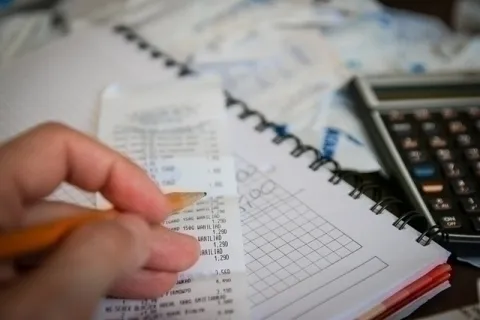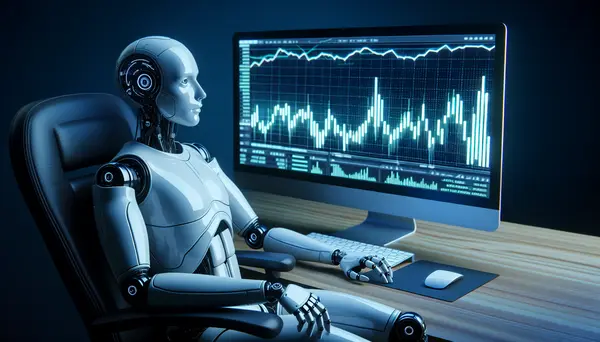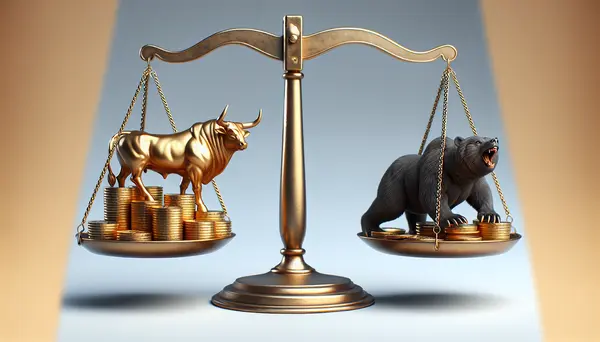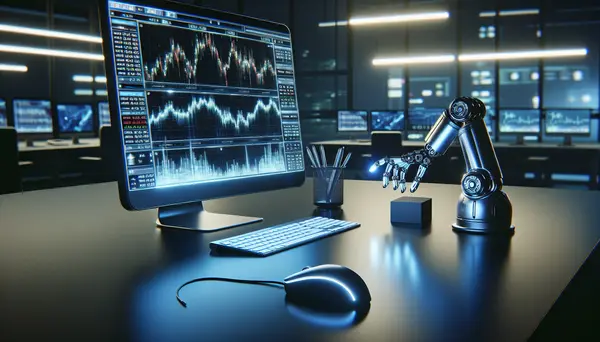- Algorithmic trading uses computer algorithms to execute trades based on predefined criteria and trading strategies.
- These algorithms analyze market data at high speeds and make decisions to buy or sell assets in a fraction of a second.
- Traders and institutions leverage algorithmic trading to maximize profits, reduce costs, and minimize the impact of human emotions on trading decisions.
So, I've been diving into the world of stocks and trading recently, and I stumbled upon this thing called "algorithmic trading". It sounds like something straight out of a sci-fi movie, doesn't it? Looks like it's all about using complex formulas and high-speed computers to make trading decisions. Sounds pretty fascinating and a bit intimidating, to be honest. I mean, what's the deal with that? How does it exactly work? Does anyone have experience with it or could maybe shed some light on this? Is it something profitable for an average trader like myself or is it more suitable for the big players on Wall Street? Any thoughts or insights would be greatly appreciated!
Algorithmic trading operates on pre-programmed instructions for placing trades. Factors like timing, price, quantity can all be set. It's faster than manual trading and reduces the chance of human error. It can adapt to changing markets and trade in fractions of a second, and it also operates without emotion, so no irrational decision making. However, remember that no trading strategy is risk-free, and algorithmic trading is no exception to this. It's certainly not as simple as just 'set it and forget it', so make sure to thoroughly research and understand it before diving in. Do you think algorithmic trading could replace human traders in the future or is there still a need for human intuition and risk assessment?
Exactly, the automated nature can also lead to large-scale failures if there's a bug or flaw in the algorithm. So, do you think it's necessary to have some kind of protective measures or emergency stop mechanisms in place? What sort of policy regulations could help monitor the use of algorithmic trading?
Totally, safeguards are a must. How about setting limits on the number of trades or strict risk management protocols? Could also use real-time monitoring to catch any funky moves. Thoughts on having a human in the loop to oversee things?
I'm feeling a bit skeptical here. While the idea of real-time monitoring sounds good in theory, how practical is it really when trades are executed in milliseconds? It seems to me there might be too much data for humans to effectively monitor, which could lead to potential oversight. Also, considering the complexity of the algorithms, wouldn't it be incredibly difficult to predict how they'll interact with market conditions and other algorithms? Plus, with the high costs associated with setting up and maintaining these systems, isn't there a risk that it could widen the gap between large institutions and individual traders? Would love to hear how these concerns might be addressed.
- How does a trading bloc like the EU impact trade? 4
- How does the Producer Price Index (PPI) data impact the market? 8
- What tools can help me perform a fundamental analysis of a company? 2
- What are some trading platforms that allow for social trading/copy trading? 6
- Are there any tools that can help me with trading psychology and discipline? 2
- How do I deal with the fear of missing profits, or FOMP? 3
- Can you explain the concept of slippage in trading? 1
- How does seasonality impact market analysis? 4
- What is a securities' yield and how can it be analyzed? 5
- How do I use price charts for market analysis? 3
- How do you navigate the regulations surrounding short selling? 318
- What are Forex trading and its basics? 290
- How does seasonality impact market analysis? 252
- How do you manage stress during volatile market conditions? 217
- How does a stop-loss order work in trading? 205
- What tax implications should I consider when trading? 200
- What are the best platforms for online trading? 193
- What's the difference between day trading and long-term investing? 190
- What is swing trading and how is it different from day trading? 185
- How do you avoid letting past trading successes or failures impact your future decisions? 180

We have compared the best crypto exchanges for you. Just take a look at our free crypto exchange provider comparison.

We have compared the leading crypto tax tool providers for you. Check out our free crypto tax tool provider comparison.
Blog Posts | Current

Don't Fall for the Hype: The Risks of Using Trading Bots
As a beginner trader, you may have come across the idea of using trading bots to automate your trading and...

Protect Your Capital with Effective Risk Management in Trading
Risk Management As a beginner trader, you're likely eager to dive into the markets and start making some profits. However, before...

The Trader's Dilemma: Dealing with Losses in Trading
As a trader, losses are an inevitable part of the game. Even the most successful traders will experience losing trades...

The 5 most common mistakes made by crypto traders
The 5 most common mistakes made by crypto traders Crypto trading is becoming increasingly popular, but there is great potential to...

Different Cost Average Trading Strategies
Cost Average Trading is one of the most popular trading strategies used by investors to minimize their risk and maximize...

Mastering Your Mindset: The Key to Successful Trading Psychology
As a trader, your success in the markets depends not only on your technical skills and market knowledge, but also...

Maximizing Returns: The Importance of Rebalancing Your Portfolio
Rebalancing your portfolio is an important part of any long-term investment strategy. It involves periodically adjusting your portfolio's asset allocation...

Breaking Down the Buzzword: What is a Trading Bloc?
Are you familiar with the term "trading bloc"? It may sound complicated, but it's actually a concept that can have...

Automating Your Trades: The Power of Trading Algorithms
As an avid trader, you've probably heard the buzz around trading algorithms. But what are they, and how can they...

From Chaos to Consistency: Why a Trading Setup is Key to Success
Trading is an exciting and rewarding way to make money, but it can also be overwhelming for beginners. One of...
